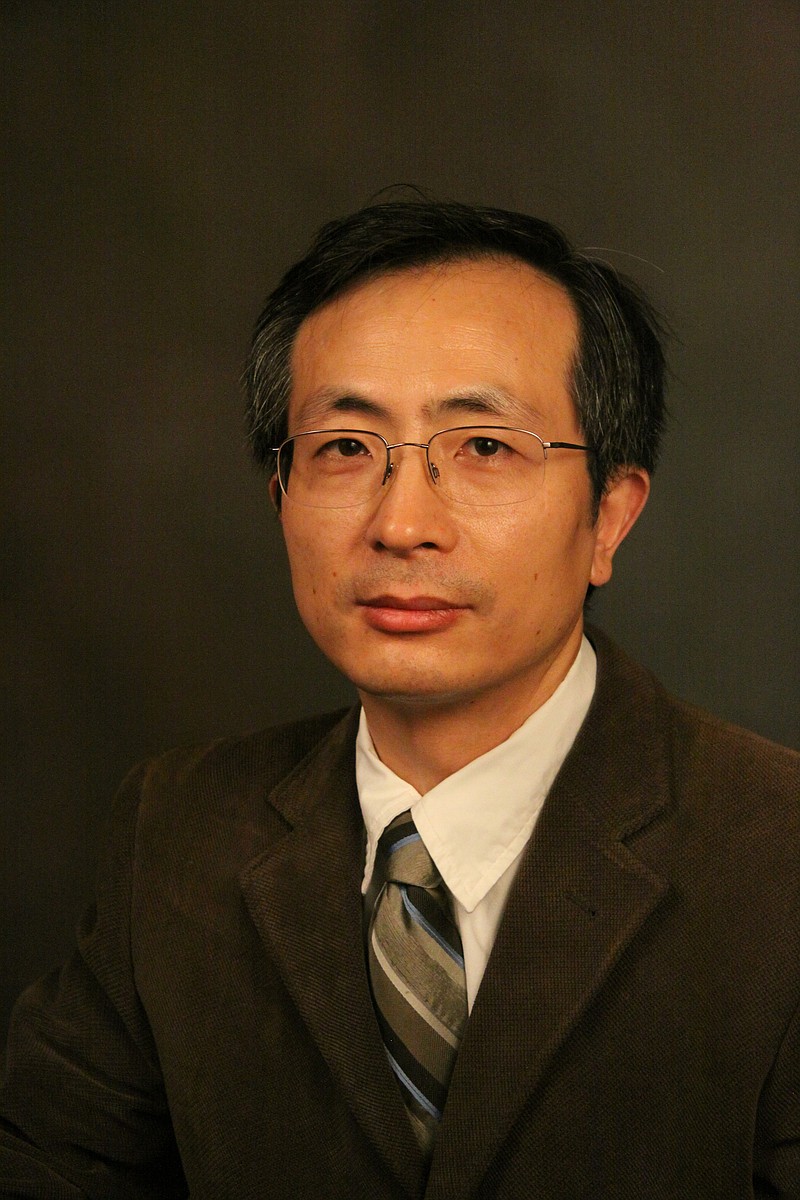A computational biologist at the University of Tennessee at Chattanooga has received a $50,000 cash award in the first phase of a global competition among experts looking for solutions to the coming challenges of an aging global population.
A research proposal by Hong Qin, a UTC professor of computer science, has been selected to advance to the second of three rounds of review in the U.S. National Academy of Medicine's (NAM) Healthy Longevity Global Grand Challenge. Qin proposed the use of artificial intelligence in searching for a common mechanism in the so-called "biological clock" responsible for how humans age.
Qin will begin testing his proposal toward documenting results in preparation for his round 2 entry in 2023. It's the latest work in what Qin said is almost 18 years of studying aging.
"This is an ambitious project," Qin said in a statement Monday regarding his research titled "Uncovering molecular mechanisms of aging clocks with interpretable deep learning."
Qin is trying to use "artificial neural networks" for "deep learning" designed to mimic the human brain's biological neurons involved in processing information and coming to conclusions or making decisions. Using the computer power of UTC's SimCenter, Qin will use neural networks to analyze massive amounts of existing data on biological markers for aging in humans and in mice and several other animal species toward the possibility of detecting a common aging mechanism.
According to the National Academy of Medicine, the share of people age 65 and over is projected to more than double by 2030, reaching 1.6 billion. The global population of people aged 80 and older is expected to more than triple between 2015 and 2050, growing from 126 million to 447 million.
The NAM Healthy Longevity Global Competition was launched in 2019 to help address the challenges of an aging population. In its first three years, the program has brought together 11 global collaborators from more than 50 countries.
"I'm trying to understand what this biological aging clock is and how it works in humans, a mouse, a fruit fly, even a single-celled organism like a fungus," Qin said. "The second-round review for the NAM competition requires a separate submission and, hopefully, I will have some good preliminary results that show this idea is not just cool, but it actually works."
Qin said in humans there is one set of biological markers for aging and other species have different sets.
"We know these different sets of biomarkers in different species on the surface, and most biologists think there are common mechanisms -- or at least overlapping mechanisms -- in these aging clocks, even though we do know about them," he said. "The good thing about deep learning is we don't have to know what the mechanism is. We can let the artificial intelligence learn -- from all the data -- what the best model or mechanisms are to explain the data."
At a recent conference, Qin met the director of a National Institutes of Health (NIH) research program who invited him to submit a proposal to a relevant program. "It has put me on the radar of other research entities," Qin said.
Qin credits the UTC SimCenter and its early support and funding for advancing his research since 2017. Qin said SimCenter's large data storage facility enabled him and his students to analyze the GTEx (genotype-tissue expression) data set for the NAM award challenge. The GTEx data set is made available by NIH through a data usage agreement.
"Without SimCenter's large-scale data storage, we would not even be able to have handled the data set," he said.
The SimCenter is one of 10 such university facilities funded by the Tennessee Higher Education Commission to advance multidisciplinary research in applied computational science and engineering toward growth in research funding and excellence in integrated research and education.
SimCenter Director and Computer Science Professor Tony Skjellum said Qin's work with the facility is an example of how the SimCenter fulfills its purpose.
"We fund scientists like Hong (Qin) -- we have peer-reviewed funding, and we have internal startup funding for projects with AI and simulation in them," Skjellum said in a news release. "We award peer-reviewed internal funding, and he's taken that and leveraged it into lots of successes in many different areas of funding and research. We sort of gave him an internal start and he's taken that to make this latest success."
Every year, the SimCenter invites research proposals, funding as many as eight or nine with up to $100,000 each for one year of work. Skjellum said the most recent funding awards went to five large-scale proposals and two smaller ones.
-- Compiled by Dave Flessner
